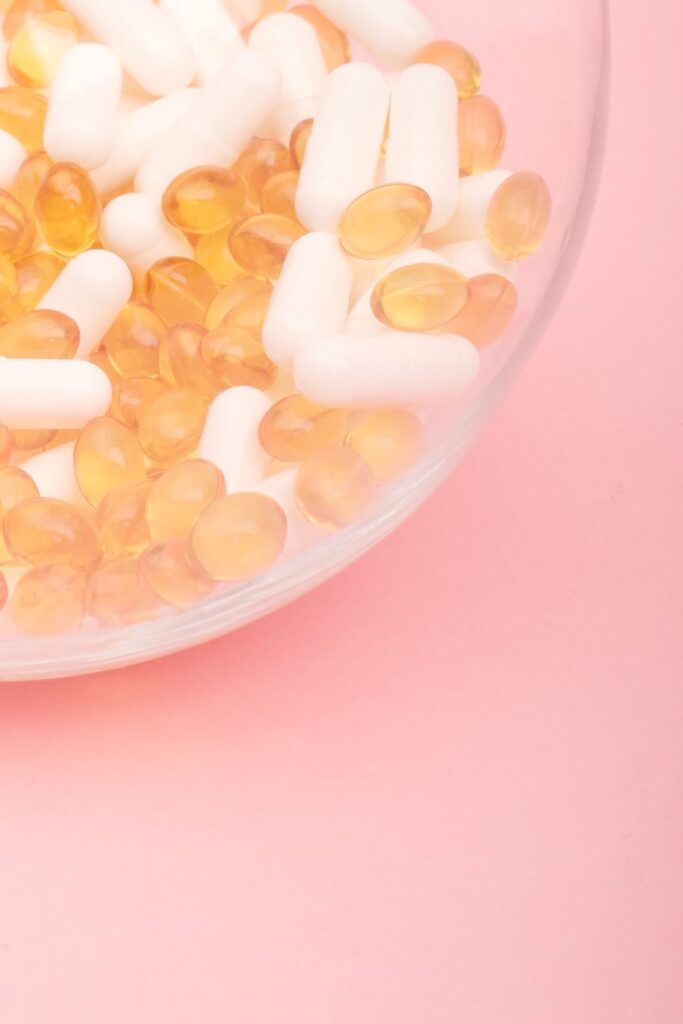Supplements and Herbs
What Vitamins Help Lower Your Cholesterol
Are you looking for natural solutions to reduce your cholesterol levels? Consider the efficacy of vitamins. Incorporating specific vitamins into your diet will help you maintain good cholesterol levels. In this article, we’ll look at the vitamins that have been scientifically proven to help decrease cholesterol.
Understanding cholesterol and its impact on health
Cholesterol is a waxy component in the blood that is necessary for many human functions. High levels of cholesterol, particularly low-density lipoprotein (LDL), can raise the risk of heart disease and other cardiovascular problems. It’s critical to understand the many forms of cholesterol and their effects on health.
When it comes to cholesterol, there are two sorts to consider: LDL cholesterol, often known as “bad” cholesterol, and high-density lipoprotein (HDL), sometimes known as “good” cholesterol. LDL cholesterol transports cholesterol from the liver to cells, whereas HDL cholesterol removes excess cholesterol from the bloodstream.
The role of vitamins in managing cholesterol levels
Vitamins are essential for overall health, and several have been shown to reduce cholesterol levels. By including these vitamins into your diet through food or supplements, you may be able to maintain healthy cholesterol levels and improve your heart health.

Vitamin B3 (Niacin) and its cholesterol-lowering effects
Niacin, often known as vitamin B3, is an essential component that the body need for healthy function. It has been shown to have strong cholesterol-lowering properties. Niacin acts by raising HDL cholesterol levels, which aids in the removal of LDL cholesterol from the blood. Niacin has also been demonstrated to lower triglyceride levels in the blood.
Consuming lean meats, fish, lentils, and whole grains can help you get more niacin. However, those who have been advised to use niacin supplements should check with a healthcare practitioner to determine the correct dosage.
Vitamin C and its potential benefits for cholesterol reduction
Vitamin C, known for its immune-boosting qualities, also helps to reduce LDL cholesterol oxidation, which has been related to heart disease. Oxidized LDL cholesterol can cause atherosclerosis, which is characterized by plaque accumulation in the arteries. Vitamin C, by lowering LDL cholesterol oxidation, can help prevent atherosclerosis progression and improve heart health.
Incorporating vitamin C-rich foods into your diet is an excellent approach to ensure you get enough of this crucial nutrient. Citrus fruits, strawberries, kiwi, bell peppers, and broccoli are good sources of vitamin C.
Vitamin E and its role in maintaining healthy cholesterol levels
Vitamin E is well-known for its antioxidant qualities, which can help keep LDL cholesterol from oxidizing in the arteries. Oxidized LDL cholesterol increases the risk of developing atherosclerosis. Incorporating vitamin E into your diet may minimize the likelihood of plaque accumulation in the arteries while also supporting healthy cholesterol levels.
Vitamin E-rich foods include almonds and sunflower seeds, as well as spinach, avocados, and vegetable oils.

Omega-3 fatty acids and their impact on cholesterol
While not a vitamin, omega-3 fatty acids are necessary nutrients that have been shown to have significant heart health advantages, such as cholesterol lowering. Omega-3 fatty acids can help reduce triglyceride levels and the risk of irregular cardiac rhythms.
Consuming fatty fish such as salmon, mackerel, and sardines can help you get more omega-3 fatty acids. Flaxseeds, chia seeds, and walnuts are all plant-based sources of omega-3 fatty acids.
Foods rich in cholesterol-lowering vitamins and nutrients
In addition to including certain vitamins into your diet, you should focus on eating a variety of foods high in cholesterol-lowering vitamins and nutrients. Fruits and vegetables, whole grains, lean meats, and healthy fats are all wonderful food choices.
Fruits and vegetables are high in vitamins and minerals, but they also contain dietary fiber, which can help lower LDL cholesterol levels. Whole grains, such oats and barley, include soluble fiber, which can help lower cholesterol absorption. Lean proteins like poultry and fish are great alternatives to red meat, which is generally heavy in saturated fat.
The importance of a balanced diet and lifestyle factors in managing cholesterol
While including vitamins and nutrient-rich foods into your diet is critical for cholesterol management, it is also crucial to eat a well-balanced diet and make certain lifestyle adjustments. Regular physical activity, a healthy weight, and quitting smoking are all important factors in controlling cholesterol and sustaining heart health.

Consultation with a healthcare professional for personalized advice
It is important to remember that, while vitamins can help maintain good cholesterol levels, it is always preferable to consult with a healthcare expert before making any significant dietary changes or starting new supplements. They may give you individualized advice based on your specific health needs and help you select the best course of action.
Conclusion
Incorporating vitamins into my cholesterol management plan can be a natural and effective way to support healthy cholesterol levels and improve my heart health. Vitamins such as niacin, vitamin C, vitamin E, and omega-3 fatty acids have all been scientifically proven to have cholesterol-lowering effects.
I’ll remember to focus on consuming a balanced diet that includes a variety of fruits, vegetables, whole grains, lean proteins, and healthy fats. Additionally, I’ll consult with a healthcare professional to ensure I’m taking the right vitamins and supplements for my individual needs.
By taking proactive steps to manage my cholesterol levels, I can prioritize my heart health and enjoy the benefits of a healthier lifestyle.


